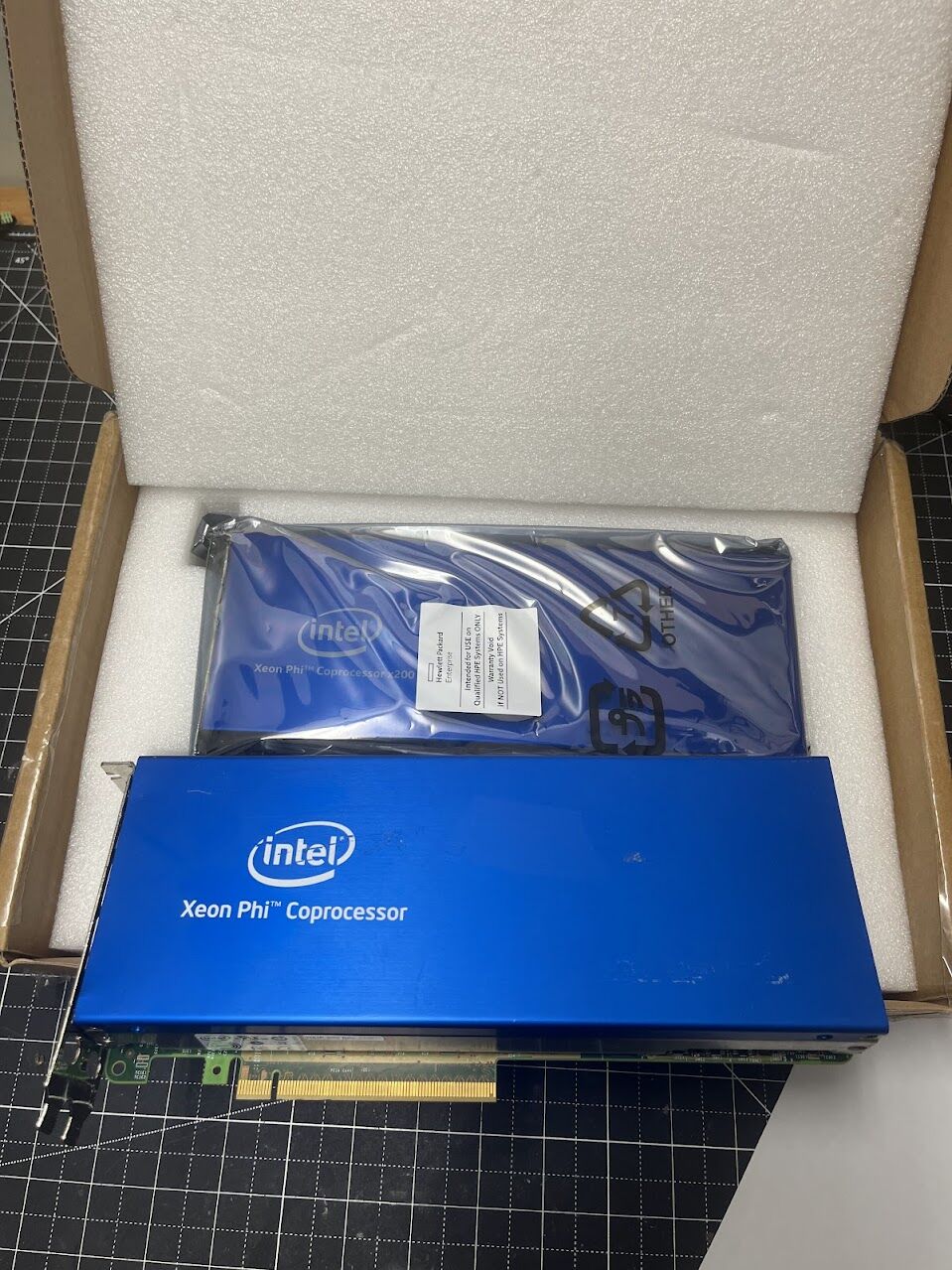A Journey Through Exotic Systems and Hardware It’s no secret that I enjoy exploring exotic systems and hardware, testing their capabilities, and understanding how they operate. I’ve already delved into hashtag#SPARC-based hashtag#Sun workstations, which I find to be excellent, installing hashtag#Linux, hashtag#BSD, and hashtag#Solaris. I’ve also experimented with hashtag#PowerPC-based hashtag#Freescale evaluation boards and the ARM X-Gene (pre- Ampere) GIGABYTE platform. Recently, I had the opportunity to work with the Intel Xeon Phi 7220P. What is Xeon Phi? According to Wikipedia, “Xeon Phi is a discontinued series of x86 manycore processors designed and made by Intel. It was intended for use in supercomputers, servers, and high-end workstations. Its architecture allowed the use of standard programming languages and application programming interfaces (APIs) such as OpenMP.” A few years ago, I had a second-generation Knights Corner based on Pentium 1 cores but couldn’t find a practical use for it. Therefore, I was excited to discover the third generation, which is based on PCI-E. “Knights Landing contains up to 72 Airmont (Atom) cores with four threads per core, using the LGA 3647 socket, supporting up to 384 GB of DDR4 2133 RAM and 8–16 GB of stacked 3D MCDRAM. Each core has two 512-bit vector units and supports AVX-512 SIMD instructions, including AVX-512F, AVX-512CD, AVX-512ER, and AVX-512PF. Support for IMCI has been removed in favor of AVX-512.” The PCIe-based co-processor variant of Knights Landing was never offered to the general market and was discontinued by August 2017. This included the 7220A, 7240P, and 7220P coprocessor cards. Intel announced the discontinuation of Knights Landing in the summer of 2018. I wonder if there is still a place for these devices and whether Intel made the right decision. My first step is to build a test server, which requires more than 4GB of available memory, and design and print a cooling adapter (thanks Bambu Lab for making great hashtag#3d printer). Since the device is no longer supported, I need to install an outdated version of hashtag#CentOS and ensure minimal network access for security purposes. Fortunately, I have a copy of the drivers and the MPSS package. Together with Jacob Asbæk Wolf, we plan to perform astrophysics calculations and compare the results with benchmarks run on other platforms, such as the Intel Xeon E5, AMD hashtag#Epyc and more. In conclusion, experimenting with technologies, even those considered “old” and “outdated,” can provide valuable knowledge for your day-to-day work. This way, you won’t be caught off guard if you encounter such technologies in critical OT/IT environments.

